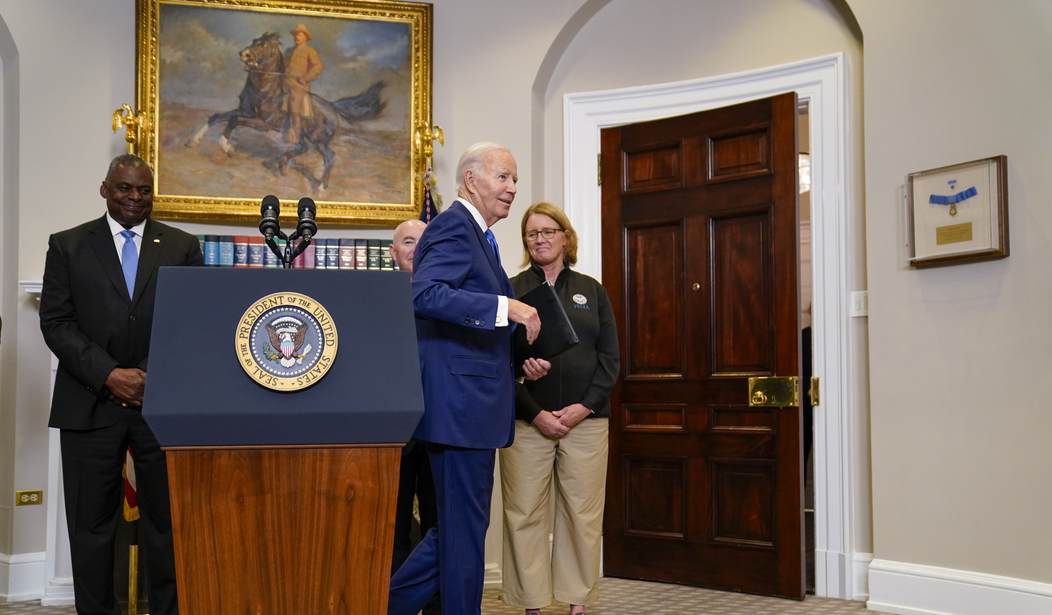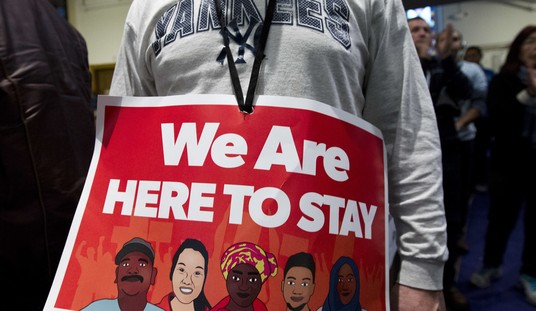Could a third-party candidate possibly derail President Joe Biden’s bid for a second term in office? Some seem to believe it could. Indeed, reports suggest that Democrats are concerned about the possibility that another candidate could siphon enough votes from the president to swing the election in the eventual Republican candidate’s favor.
The question is: Will a third-party candidate be able to garner enough support to influence the outcome of the 2024 presidential election?
RedState’s Joe Cunningham wrote a piece detailing how some have speculated that this scenario could materialize.
It is no wonder, then, that his polling is sideways and that people in his orbit think there's a major threat coming from third-party groups.
In a new national NBC News poll, Biden is tied with former President Donald Trump, the front-runner for the GOP nomination, at 46% in a head-to-head matchup. But when third-party options are included, Trump leads Biden 39% to 36%.
Whether it's the academic Cornel West, a yet-to-be-named standard-bearer for the group "No Labels" or nominees of the more established Green and Libertarian parties, the third-party hopefuls have become the chief internal worry in Biden world, according to more than a half-dozen people who are in regular contact with the White House.
Apparently, the worries have gotten so bad that Hillary Clinton pulled Biden aside and told him to take the third-party stuff seriously. It should be noted that many on Team Hillary blame third-party candidates like Jill Stein for siphoning off Democratic voters and costing her the election. That may have had some impact, but considering the Clinton campaign focused on urban turnout and ignored flyover country, as well as thinking they could get young voters actually out to vote, it's not clear how reliable her advice could be considered.
Indeed, the poll numbers are not favorable for Biden’s chances of winning the election – even though he is an incumbent. Concerns about Biden’s age have grown increasingly prevalent, even among Democratic voters. The president’s campaign is currently focusing on mitigating the potential impact of a third-party candidate by courting younger voters, a demographic that Republicans have struggled to win over.
I wrote a piece on my Substack that could provide more context for the current political climate we are in. Polls have shown that Americans are more open to considering a libertarian or other third-party contender, especially if the race is between Biden and former President Donald Trump.
A recent poll conducted by NewsNation and Decision Desk HQ revealed that nearly half of voters are opposed to a rematch between President Joe Biden and former President Donald Trump in the 2024 presidential election. The survey found that 23.38% of voters said they are very likely to consider voting for a third-party candidate if the two were to face off again, while 25.67% said they are somewhat likely to do the same.
This is not the first time a poll has indicated that Americans would consider a third-party candidate. But here’s the thing: The way people respond to these polls does not necessarily reflect what they will do when they go to the ballot box.
This is what I call the “Third-Party Paradox.”
The main reason why Americans are hesitant about supporting a third party – even if they believe the candidate would be better than Team Red or Team Blue – is due to fear. Both Republicans and Democrats have done an excellent job at scaring people into voting for them. The common refrain is that voting for a Libertarian or Green Party candidate will only help the opposite team win. This causes people to cast their votes for Republicans to prevent a Democratic victory and vice versa.
Moreover, there is also the reality that both major parties work together to keep other options off the ballot by instituting onerous ballot access requirements. Moreover, the elite media rarely gives the level of attention to other parties that it gives to Republicans and Democrats. This further perpetuates the notion that anybody without an “R” or “D” next to their name does not stand a chance of winning.
So, in Biden’s situation, a third-party candidate might not cause the level of damage that some might suggest. The Third-Party Paradox remains a powerful force.
However, there is a chance that this election could be different from those in days past. Regardless of what Democrats and their close friends and allies in the media would have us think, Biden’s age and apparent cognitive difficulties are an issue – and will continue to dog his campaign for the entire election season. Moreover, a sizeable chunk of the voting public is dissatisfied with both parties, which could prompt enough independents to vote for third parties to protest the duopoly that has endured for hundreds of years.
Still, it is a long shot. But in this day and age, anything can happen.













